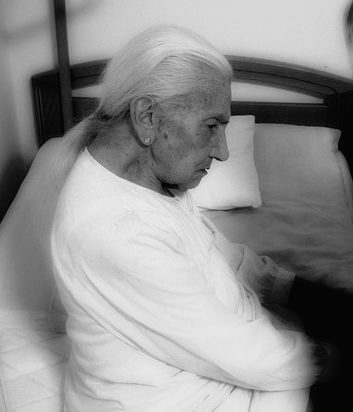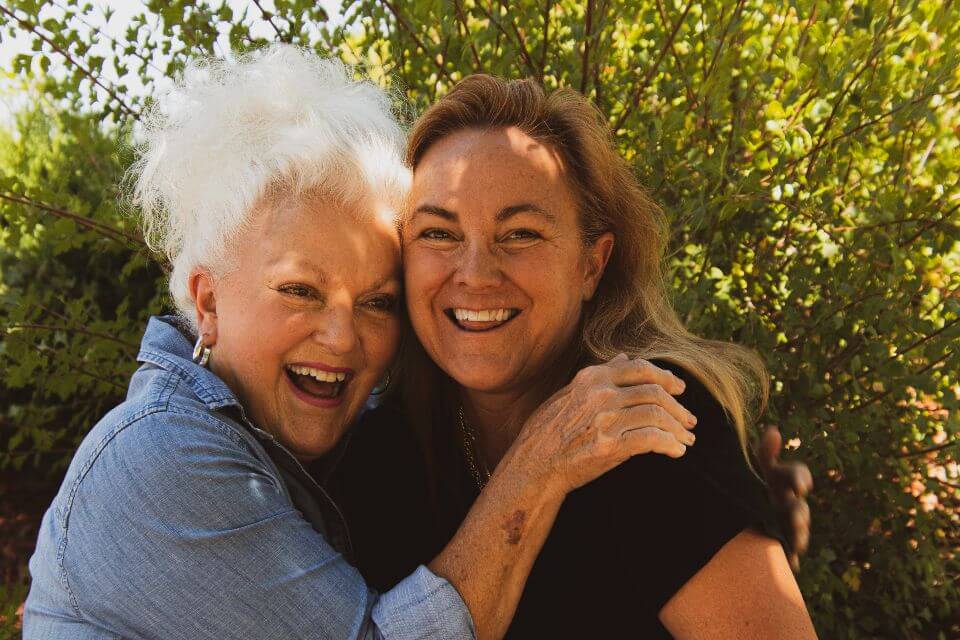Elderly Not Eating and Sleeping All the Time
It’s not uncommon to see elderly people spending most of their time sleeping or not eating properly. While this may seem like a normal part of aging, it could be a sign of a deeper issue. In this article, we will explore the reasons behind this behavior and offer some suggestions for how to help.
Physical Causes

Many physical factors can cause elderly individuals to lose their appetite and energy levels. Chronic pain, digestive issues, and medication side effects can all contribute to a lack of appetite.
Additionally, as people age, their bodies may become less efficient at absorbing nutrients, which can lead to deficiencies that further exacerbate the problem. In some cases, this lack of energy and appetite may be a symptom of an underlying medical condition, such as depression, dementia, or cancer.
Psychological Causes

In addition to physical causes, psychological factors can also play a role in an elderly person’s lack of appetite and energy. Depression, anxiety, and loneliness are all common issues that can affect older adults.
These feelings can make it difficult for them to find enjoyment in activities or feel motivated to eat. Additionally, older adults may feel a loss of control over their lives, which can lead to a sense of hopelessness and a lack of interest in engaging in daily activities.
Social Causes

Social isolation is a major problem for many elderly individuals, particularly those who live alone or have limited mobility. Without social interaction and companionship, older adults may feel lonely and disconnected from the world around them. This can lead to a lack of motivation to eat and participate in activities. Additionally, older adults may face financial constraints that limit their access to healthy food and social activities.
Tips for Helping
If you are concerned about an elderly loved one who seems to be sleeping and not eating enough, there are several things you can do to help. Here are a few tips:
1. Encourage socialization

Try to get your loved one involved in social activities, such as joining a club or taking a class. This can help them feel more connected to others and provide a sense of purpose.
2. Offer healthy food options
Make sure your loved one has access to healthy, nutritious food options. If they have limited mobility or financial constraints, consider arranging for meal delivery services or grocery delivery.
3. Address medical concerns
If you suspect that a medical condition may be contributing to your loved one’s lack of appetite and energy, encourage them to see a doctor. It’s important to rule out any underlying medical issues.
4. Address psychological concerns
If you suspect that your loved one may be experiencing depression, anxiety, or other mental health issues, encourage them to speak with a mental health professional. Counseling and medication may be necessary to address these concerns.
Is it normal for elderly people to sleep a lot?
It’s not uncommon for elderly people to sleep more than younger individuals. As people age, changes in their bodies can affect their sleep patterns. For instance, older adults may experience a decrease in deep sleep, which can lead to more daytime sleepiness.
Additionally, health conditions such as sleep apnea, restless leg syndrome, and chronic pain can disrupt sleep and cause older adults to feel tired during the day.
Moreover, older adults may also experience lifestyle changes that can impact their sleep. For example, they may be less physically active, which can make it harder to fall asleep at night. They may also be taking medications that have drowsiness as a side effect. Additionally, retirement or decreased work hours may provide more opportunities for daytime napping.
However, while it’s normal for older adults to require more sleep than younger individuals, excessive sleepiness or changes in sleep patterns can be a sign of a more serious health issue.
For example, sleep disorders such as insomnia or sleep apnea can affect people of all ages, and older adults may be more susceptible to certain sleep disorders due to age-related changes in their bodies.
What are the potential health consequences of an elderly person not eating or sleeping enough?

When elderly people do not get enough food and sleep, their health can be negatively affected in many ways. For example, a lack of food can lead to malnutrition, which can weaken the immune system and increase the risk of infections. This can be particularly dangerous for elderly people, who are already at a higher risk for health problems.
In addition, a lack of sleep can also have serious consequences for elderly people. Sleep is important for the body to repair and regenerate itself, and a lack of sleep can lead to a variety of health problems, such as memory problems, mood disorders, and an increased risk of falls.
Furthermore, when elderly people do not eat or sleep enough, they may become more prone to depression and anxiety. These conditions can further exacerbate other health problems and can lead to a lower quality of life for the elderly person.
It’s important to note that there can be many underlying reasons why an elderly person may not be getting enough food or sleep. For example, they may be experiencing physical or mental health problems that make it difficult for them to eat or sleep. In some cases, medication side effects or environmental factors, such as noise or discomfort, may also play a role.
How can family members distinguish between a normal decrease in appetite due to aging and a more serious issue?
When it comes to aging, it’s common for seniors to experience a decrease in appetite. However, it can be difficult for family members to distinguish whether this is a normal part of the aging process or a more serious issue.
One way to differentiate between the two is to keep an eye on how much weight the senior is losing. A small amount of weight loss may be normal, but significant weight loss could be a sign of a more serious issue.
Another indicator is whether the senior is experiencing any other symptoms such as nausea, vomiting, or difficulty swallowing. These symptoms could be a sign of an underlying medical condition.
It’s also important to consider any medication the senior is taking, as some medications can cause a loss of appetite as a side effect. In this case, it may be worth speaking with their doctor to see if any alternatives could help improve their appetite.
Ultimately, if family members are concerned about a senior’s loss of appetite, it’s always best to consult with a healthcare professional. They can help determine whether it’s a normal part of the aging process or a sign of a more serious issue that requires further attention.
What role does medication play in an elderly person’s appetite and energy levels?

Medication can play a significant role in an elderly person’s appetite and energy levels. As people age, their bodies may become more sensitive to medication, which can affect their appetite and energy levels.
For example, some medications can cause nausea or stomach upset, which can lead to a loss of appetite. Other medications can cause drowsiness or fatigue, which can lead to a lack of energy.
In addition to the direct effects of medication, some medications can interact with each other or with certain foods, which can also affect appetite and energy levels.
For example, some medications may need to be taken with food to avoid stomach upset, but certain foods may interact with the medication and reduce its effectiveness.
How can caregivers address an elderly person’s lack of appetite without resorting to force-feeding?
When caring for an elderly person, it’s not uncommon for caregivers to face the challenge of a lack of appetite. This can be due to a variety of reasons, such as medications, depression, or a decline in the sense of taste and smell. However, resorting to force-feeding is not a solution, as it can lead to physical and emotional distress for the elderly person.
One way to address an elderly person’s lack of appetite is by offering small and frequent meals throughout the day, rather than large meals. This can help stimulate their appetite and make it easier for them to eat. Additionally, offering a variety of foods with different textures, colors, and flavors can make the meals more appealing.
Another approach is to involve the elderly person in meal planning and preparation. This can give them a sense of control and autonomy, which can help stimulate their appetite. It can also be a fun and social activity for both the caregiver and the elderly person.
Caregivers can also consider incorporating nutritional supplements or shakes into the elderly person’s diet, as they can provide essential nutrients and calories in an easy-to-consume form. However, it’s important to consult with a healthcare professional before introducing any supplements or dietary changes.
Can social isolation be a cause of an elderly person’s lack of appetite and energy even if they live with family members?
Social isolation can indeed be a cause of an elderly person’s lack of appetite and energy, even if they live with family members. While living with family members may provide some social interaction, it may not always be enough to meet the social needs of an elderly person.
As people age, their social circles often shrink due to factors such as retirement, health problems, and the loss of friends and family members. This can lead to feelings of loneliness and isolation, which can contribute to a loss of appetite and energy.
In addition, elderly people may face barriers to social interaction even when living with family members. For example, family members may be busy with work or other responsibilities, leaving the elderly person alone for long periods. The elderly person may also have physical limitations that make it difficult to leave the house or engage in activities outside of the home.
Furthermore, family members may not always be able to meet the emotional needs of their elderly loved ones. While family members may provide care and support, they may not be able to provide the same level of social interaction and companionship as a wider social network.
Conclusion
It’s important to remember that elderly individuals who are not eating or sleeping properly may be experiencing physical, psychological, or social issues that require attention. As family members or caregivers, it’s important to take steps to address these concerns and provide support.
By encouraging socialization, offering healthy food options, addressing medical and psychological concerns, and providing companionship, we can help older adults live happier, healthier lives.
Have you had experience with an elderly loved one who was experiencing a lack of appetite and energy? What steps did you take to help them?
